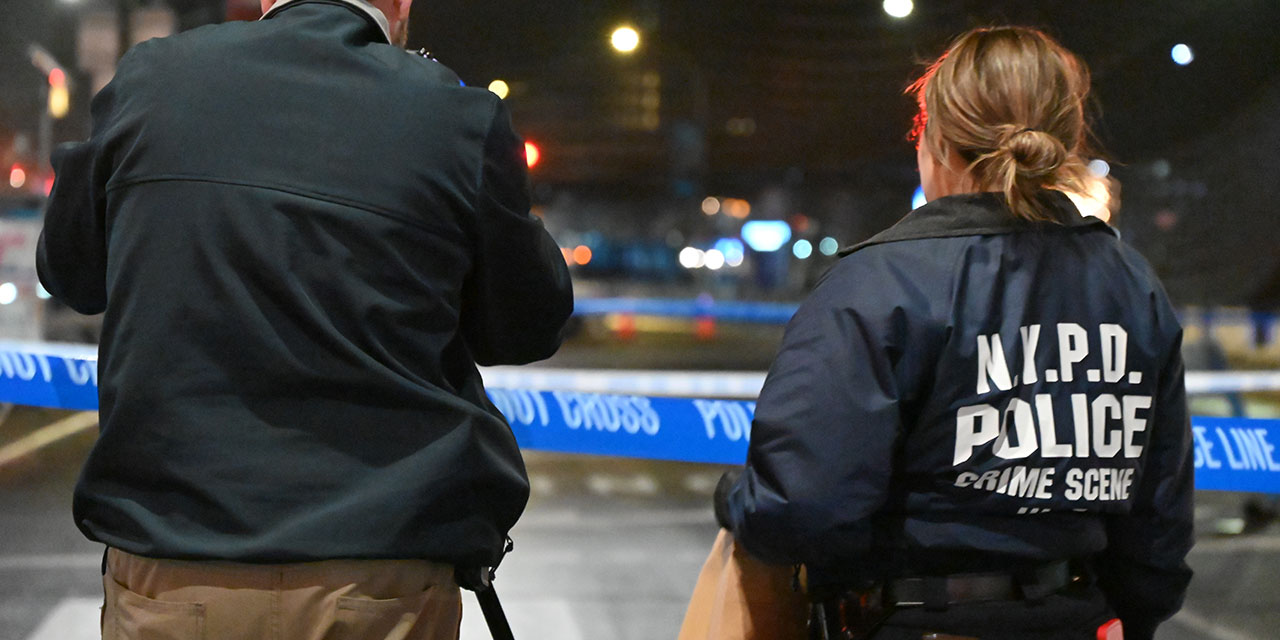
State legislatures around the country are starting to rein in the expansive criminal-justice reforms passed amid the anti-police fervor that peaked in the George Floyd summer of 2020. Last year, Oregon undid its monumental 2020 drug decriminalization, following surging overdoses and public consumption. North Carolina and Louisiana reattached criminal consequences for older teens after sweeping “Raise the Age” legislation fueled teen violence. And California’s Proposition 36 resurrected felony charges for shoplifting and drug offenses that Proposition 47 had removed, as residents lost patience with the community degradation they caused. All the measures worsened disorder and violence; walking them back is good news.
New York, too, is contemplating curbing the extreme elements of its 2020 statewide discovery law, which created one of the country’s most pro-defendant legal regimes. The reforms imposed a uniquely high burden for evidence collection, forcing prosecutors to scrounge up meaningless “evidence” in an artificially constrained timeframe or else be forced to dismiss their cases. Whether New York will follow other states in reprioritizing public safety may hinge on an urgent deadline: April 1, when the state budget must be finalized. If legislators don’t include changes to the discovery law in this budget cycle, inertia and gubernatorial incompetence could prevent meaningful reform for years.
Finally, a reason to check your email.
Sign up for our free newsletter today.
The discovery law caused case dismissals to surge dramatically, and even the most progressive lawmakers acknowledge that many legitimate criminal cases have been thrown out. The statistics are alarming—especially in New York City, which juggles higher caseloads than rural areas. The city’s dismissal rate has jumped from 42 percent of prosecuted cases in 2019 to a shocking 62 percent last year.
Even more troubling, the city has moved from dismissing a negligible 5 percent of Criminal Court cases on procedural grounds—for example, not filing case material in the proper timeframe—to an astounding one-third of all cases. In 2024, 38,000 more cases in Gotham were thrown out than in 2019, not for any considerations of justice but because prosecutors couldn’t assemble the irrelevant but now required “discovery” materials before the law’s deadline passed.
Earlier this month, for example, Wuielver Vazquez Martinez was excused in Brooklyn from second-degree assault and other domestic violence charges, primarily because prosecutors hadn’t proactively submitted details about a detective who was not assigned to the case but had taken a domestic-violence report from Martinez’s alleged victim. Under the discovery law, this oversight allowed Martinez’s attorney to file to have his case dismissed, denying the victim justice and protection.
Also this month, Wilson Sanchez had felony drug charges against him dismissed because prosecutors didn’t think probation records were mandated under the discovery law and so did not immediately collect them. But the Long Island judge in the case disagreed, so Sanchez walked.
Last month in Manhattan, Diamond Haggan escaped felony robbery charges because the court faulted prosecutors for failing to acquire nonexistent photos of the victim’s internal injuries, as well as medical records from an out-of-state hospital over which they have no subpoena power.
These are just a few of the court cases—from rape to attempted murder—that would have moved forward in 2025 under ordinary discovery rules. The results in New York City have been devastating: the conviction rate has plummeted from around half of cases to barely a quarter.
Amending the discovery law’s excesses law should be a no-brainer, but New York has been slow to shrug off its ideological commitments to shrinking the criminal-justice system. The state also suffers from the political distraction of presidential intervention in everything from immigrant-shelter policies to congestion-pricing rules to Mayor Eric Adams’s federal prosecution.
Governor Kathy Hochul drafted a modestly amended discovery bill as part of her FY 2026 state budget. Her reforms aim to prevent guilty defendants from being excused for trivial paperwork issues. The adjustments would require defense attorneys to demonstrate that any documents, records, videos, or other material that prosecutors fail to submit in a timely fashion would affect the outcome of the case prior to seeking immediate dismissal (as opposed to a reasonable adjournment).
Even if all Hochul’s changes get enacted, however, New York’s discovery regime would still be the most defendant-friendly in the country. The state should also consider amendments that would reverse overburdensome evidence-collection mandates and require certain evidence collection only for actual trials.
The stakes are high: if the legislature can’t agree to a substantive law change before April 1, sources involved in the Albany negotiations say that a rollback is unlikely for a long time due to progressive resistance and Governor Hochul’s weak leadership. This would be a tragedy for the tens of thousands of victims who have been deprived of justice because New York refuses to concede that its reforms crossed the bounds of common sense.
Photo by Kyle Mazza/Anadolu via Getty Images
City Journal is a publication of the Manhattan Institute for Policy Research (MI), a leading free-market think tank. Are you interested in supporting the magazine? As a 501(c)(3) nonprofit, donations in support of MI and City Journal are fully tax-deductible as provided by law (EIN #13-2912529).
Source link
















